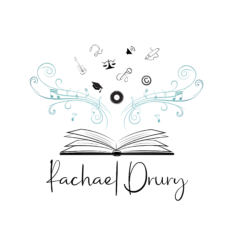Research
Music AI and Copyright
My MA research (Music Industry Studies at the University of Liverpool 2019-20) focused on the use of augmented reality – specifially holographic performance – in the live music industry which raised a number of questions about the future integration of artificial intelligence in both holography and the music industry in general. Further research when preparing my PhD proposal unveiled a worrying truth that we are closer to autonomous computer-generated music than one might think and that UK copyright law already has protections for computer-generated works in place. My research aims to evaluate the potential impact of computational creativity on the economic and philosophical value of human creativity.
Image by DALL-E 2
Abstract
As the music industry has become increasingly digitised, the value of creativity and artistry is gradually being replaced by that of technology and data. In recent years, there have been rapid developments in artificial intelligence (AI) that threaten to decentralise, democratise and question the value and meaning of creativity and copyright protections. Despite being the economic vehicle of the industry, copyright law – the purpose of which is to protect creative works, to provide remuneration for creators and to give copyright holders control over their works – fails to keep up with advancements in technology that continue to change the face of the music industry and potentially the face of the copyright regime.
My research will focus on computational creativity and ‘AI music’: an AI subset of machine learning and artificial neural networks, where machines are fed existing music for unsupervised learning, creation and production of music. Big players in the technology industry have realised the potential of computational creativity with Google’s Magenta Project, IBM Watson and Sony’s Flow Machines harnessing powerful machine learning musical capabilities. Spotify, the world’s biggest music streaming service, has also established its own Creator Technology Research Lab. Most software is intended to be a collaborative tool for composers and songwriters to work with, yet the nature of this technology means that systems will continue to improve and the output will become increasingly difficult to distinguish from human-created works. Computational creativity is being commodotised by an increasing number of AI companies, many of which offer simple full track generation at the push of a button. What is to stop these or other companies taking advantage of this technology to provide cheap and fast solutions for clients who need to purchase new music?
As the music industry edges towards a time where machines are able to autonomously create musical works, the impact of this development within the music industry must be assessed. Currently, the UK is one of the few countries in the world who offer copyright protection to computer generated works. Other domestic copyright policies and multi-country treaties such as TRIPS and the Berne Convention offer different protections in territories outside of the UK. This poses a number of questions regarding authorshop, ownership and infringement. My research aims to examine the impact of computational creativity on the economic and philosophical value of human creativity by considering the meaning of creativity, originality, authorship, ownership, and the potential misuse of this technology within the context of UK copyright law. In conclusion, I hope to evaluate whether there is a need for increased protection of human creativity against infringement and loss of income in order to preserve economic value in the music industry, potentially through policy reform.

